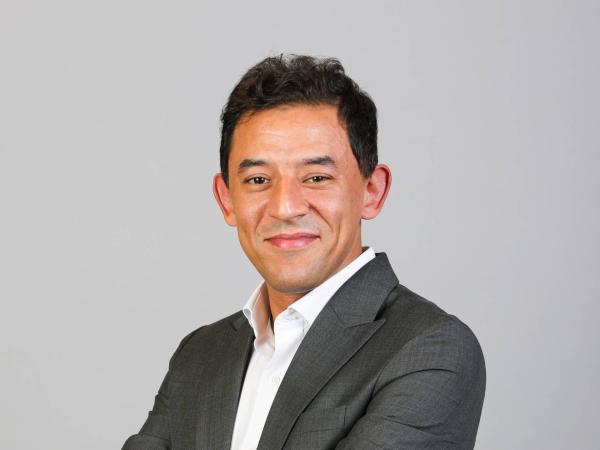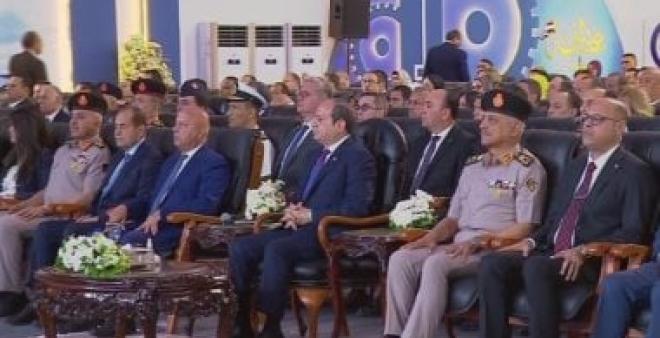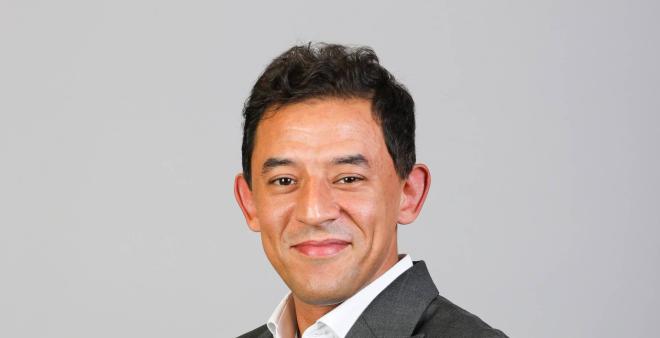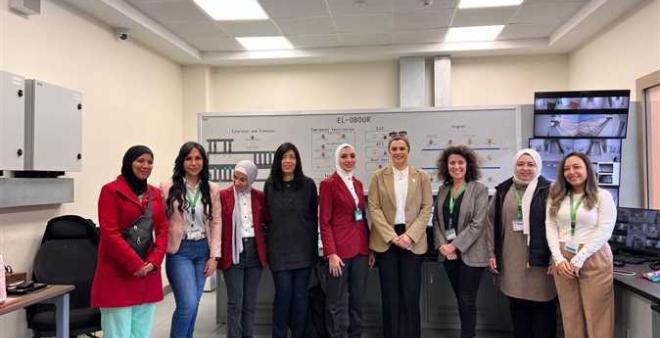France’s RATP Dev looks to bring global standards to Cairo’s Metro Line 3, LRT

The company is expanding capacity, digitizing services, and building local capabilities to make the metro system more efficient and sustainable. RATP Dev Mobility Cairo (RDMC) is playing an increasingly important role in the capital’s transport network. The local arm of France’s RATP Group — the long-time operator of Paris’ metro, tram, bus, and suburban rail networks, which operates some 29 metro lines, 39 tramways, 8 railways, and 14k buses worldwide — began a partnership with the Transport Ministry in 2020 to manage, operate, and maintain Cairo Metro Line 3 and its extensions. After that, the company was also tapped to operate and maintain the Light Rail Transit (LRT) system linking Cairo and the new capital, representing a shift in how public transport is run in Egypt.
The goal is to set new standards: The partnership is about more than just running trains, as it shows the company’s operational standards and ability to implement international best practices, RDMC CEO and Managing Director Wadii Bouchiha told EnterpriseAM. They aim “not only to match but to surpass those in Paris, London, and elsewhere,” he added.
The private sector model creates efficiency by placing the operator under contractual pressure to deliver quality services, Bouchiha said. If contractual terms are not met, there are consequences — a structure used globally where private operators have been found more effective in raising service standards, he added.
The scope of work has already expanded. When RDMC took over Metro Line 3 in 2021, it covered 20 km and 19 stations. Today, it runs 40 km across 34 stations. Passenger numbers are expected to exceed 1 mn daily. In addition to this, there is also the LRT, which is a central component of the National Authority for Tunnels’ integrated transport strategy to connect Greater Cairo with the new capital and other new urban areas. For the LRT, RDMC was involved from system testing through to operations, which Bouchiha said saves time and money. “Design errors last 50 years — the operator must be involved from the start,” he said.
Behind this is a predominantly local workforce. While management is foreign, the workforce is overwhelmingly local, with 99.4% of employees being Egyptian, Bouchiha said. “We train local staff and set clear systems, but execution is Egyptian. Our goal isn’t just operation — it’s knowledge transfer and raising standards,” he said. While every employee undergoes induction training and annual refreshers, many are also sent to Paris and other sites for further training. “Some have already gained such strong experience that they now support projects abroad, such as in Riyadh and Paris. Soon, we’ll be launching a Mobility Training Center to serve as a hub for skill development and knowledge transfer.”
By the numbers: Daily ridership has jumped from 100k in 2021 to an average of over 400k today and up to 650k on peak days, due to improved maintenance, customer service, cleanliness, punctuality, and a natural 25% rise in demand. Passenger satisfaction has also risen since then, reaching 95%, up from 75%.
The transition was initially challenging, as the company sought to introduce new standards across operations and maintenance to become a benchmark in Egypt. New safety and discipline standards were introduced — including a ban on smoking in offices — creating a new operating culture, Bouchiha said. The Covid-19 pandemic was another hurdle, hitting just months after operations began. The operational model relies on setting clear rules, enforcing them, and ensuring staff understand their purpose. This discipline is necessary in a system that serves mns daily, Bouchiha said.
Digitization is central to RDMC’s strategy. With the pace of change accelerating and more services becoming just a click away, the company is building a comprehensive digital ecosystem that offers around-the-clock access to travel information and services via a website, mobile app, and official social media. RDMC is also driving a digital transformation in operations and maintenance, preparing for a shift from traditional scheduled maintenance to AI-powered predictive maintenance to cut costs and reduce breakdowns. At the same time, RDMC is collaborating with the Transport Ministry and the National Authority for Tunnels on a unified ticketing system, introducing QR codes and electronic student subscriptions, while exploring integration with payment platforms such as Fawry to make services accessible to all passengers.
RDMC took direct control of maintenance to ensure a skilled Egyptian workforce that can operate independently of foreign suppliers. In line with the Industry Ministry's strategy to gradually localize the components needed to maintain railway systems, RDMC is moving forward with the production of some spare parts locally, with the first batch including around 150 high-demand spare parts to be manufactured by the company directly or through strategic partnerships with local manufacturers. “Safety is the most important thing in such a complex system — there is no room for error,” Bouchiha said. “But we believe the goal shouldn’t just be to meet local needs. We want to open new export markets for Egyptian-made components, and as part of a global group we can help make that happen.”
The company is also pushing for more inclusion and training. RDMC has introduced Egypt’s first female metro drivers and first female depot manager.
RDMC views its role in Egypt in the long term. The company is committed to supporting sustainable transport and prioritizing customer service, cleanliness, and safety. “We are not here to make profits and leave, but to create lasting value,” Bouchiha said. Line 3 and the LRT are seen as a starting point, with plans to compete for additional projects and contribute to a fully integrated transport network by 2030, Bouchiha said.
Partnerships are also being used to boost efficiency. RDMC works with Schneider Electric, Enova, and others to deploy LED lighting, smart cooling systems, and other solutions to cut energy use and emissions.
The company is also tasked with maximizing economic returns from transport facilities. This includes growing passenger numbers and developing non-fare revenues. Drawing on its experience in Paris and Hong Kong, the company is working with partners to boost advertising and commercial services in stations, Bouchiha said.
Plans under consideration include installing smart delivery boxes in metro stations in partnership with global e-commerce companies, providing a safe and quick option for parcel deliveries. The goal is to create sustainable added value for both the operator and the state. “We have the infrastructure and resources, and we are committed to using them to benefit both the government and passengers alike,” Bouchiha said.



